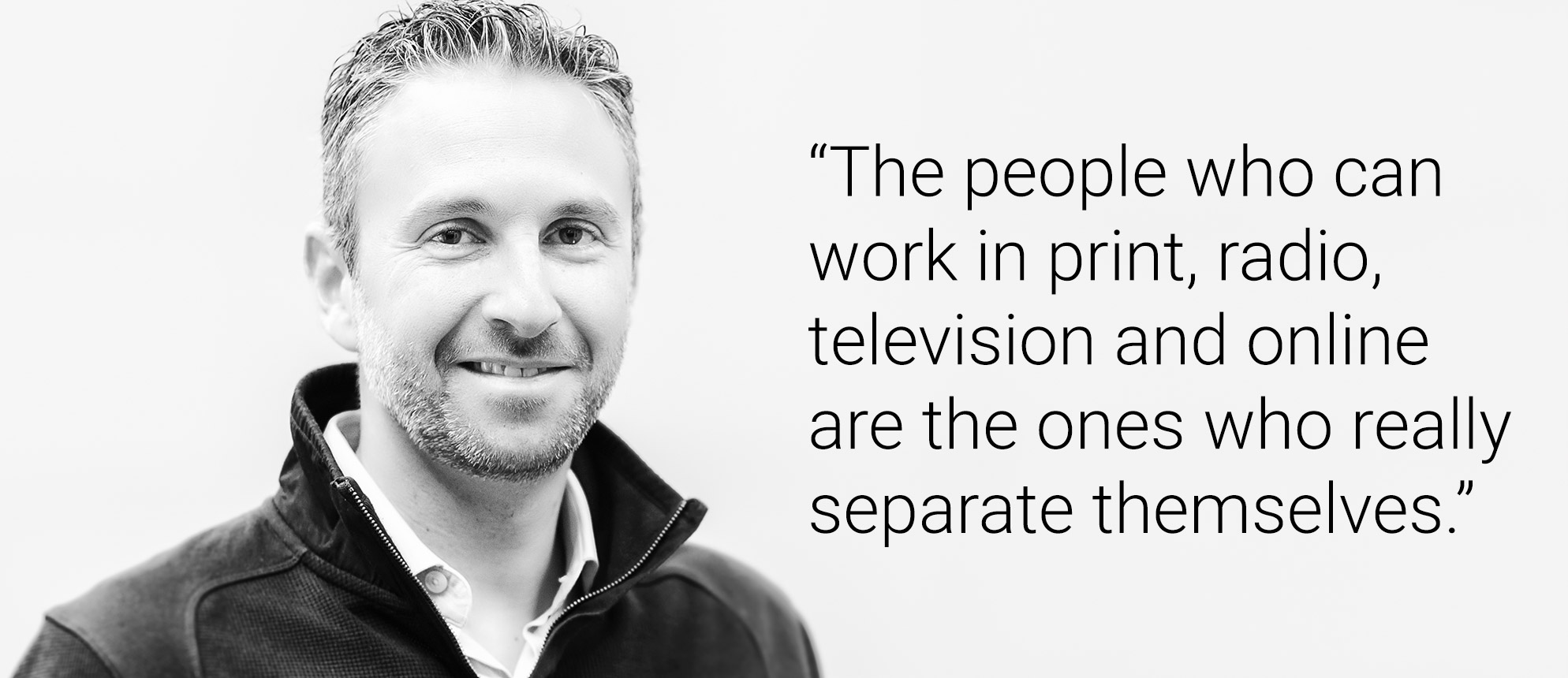

As far as careers go, Shi Davidi hit a home run.
Davidi is the highly respected Toronto Blue Jays reporter for Rogers Sportsnet, so his office is the ballpark. The versatile reporter attends most games to provide news and analysis on television, radio and in print.
As Davidi recently explained to a curious class of students in the University of Guelph-Humber’s Media Studies program, modern journalists need to be able to cover all the media bases to succeed.
“What media is now is not what it’s going to be five years from now and definitely not 10 years from now,” Davidi said. “The people who can work in print, radio, television, and online are the ones who can really separate themselves.”
For Davidi, his career path to the field wound through different cultures and disciplines. UofGH students were fascinated to hear about the time he spent as a journalist in his formative years for the Jerusalem Post and Japan Times. Along the way, he gained experience writing about all topics but still found himself gravitating to sports.
“I’ve covered real life things, and sports is a lot more fun,” said Davidi, sharing anecdotes about covering forest fires, bombings and strikes.
Davidi first became a regular Blue Jays reporter for Canadian Press before moving over to Rogers Sportsnet. In a given day, he arrives hours before the game starts to make phone calls, research the teams and prepare for TV and radio appearances.
He stressed that these roles are still evolving, and that the young journalism students would “carry media into the future.” Social media in particular has changed the landscape drastically.
“You can build a following on your own,” he advised. “That gives you a base to work off and employers pay attention to that.”
Aside from the need for multi-platform storytelling, Davidi also stressed the importance of accuracy and fact-checking in an age when so much information is disseminated in moments on social media.
“I invited Shi to speak to my first-year journalism students so they could gain perspective on the daily challenges and opportunities of journalists today,” said University of Guelph-Humber instructor Heath Applebaum, who has also brought executives from Universal Music, Labatt, Indigo Books and the Toronto Blue Jays to his classrooms to share their experiences.
“To succeed you have to be inquisitive, ask smart questions and build strong relationships so that sources trust reporters to tell stories.”
Ultimately, the UofGH students who heard the class – especially the baseball fans – took away an inspiring message about the possibilities that exist in media.
“At the end of the day, I just enjoy watching a lot of baseball,” Davidi said with a laugh. “If I was going to do it at home anyway, I might as well make a living doing it.”



